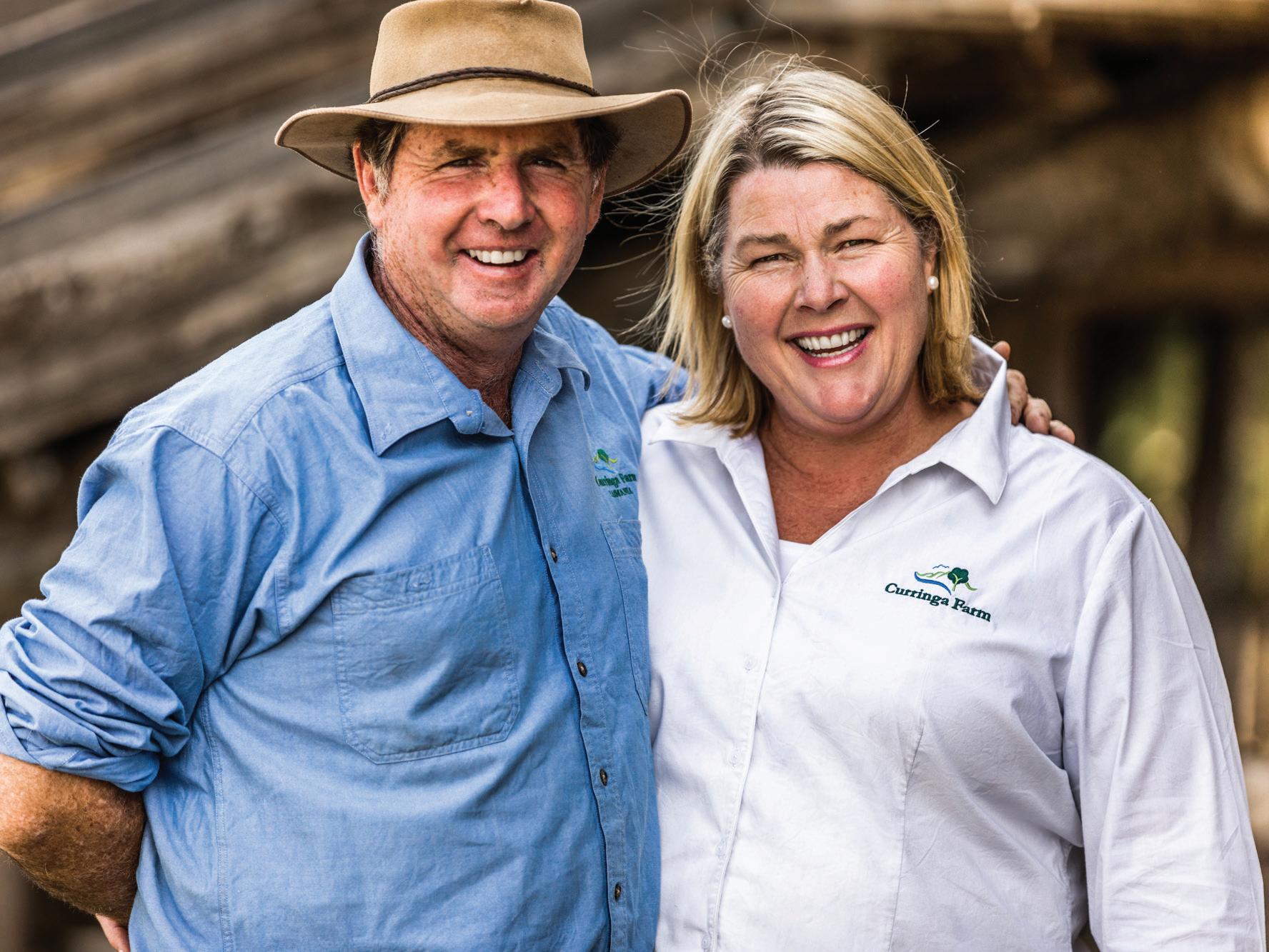
5 minute read
TOURISM PROFILE: One-on-one with new TICT director Tim Parsons
TOURISM PROFILE: ONE-ON-ONE WITH CURRINGA FARM’S DIRECTOR TIM PARSONS
From managing 3000 sheep to winning three National Tourism Awards with his wife Jane, Tim Parsons is no stranger to hard work and hospitality.
Advertisement
Over more than three decades he has honed his skills and grown the farmstay business his mother pioneered in the early 1980s at Hamilton, north-west of Hobart. Together with Jane he owns and operates Curringa Farm, a working sheep and cropping farm that operates in conjunction with accommodation, restaurant and farm tour experiences. He is excited by the opportunity he now has to spread his knowledge as one of the new board directors of the TICT, representing the Australian Tourism Export Council Tasmania Branch. “I am really looking forward to being involved at a broader, statewide level and playing a more intensive role aside from what I have been doing locally and regionally,” Mr Parsons says. Mr Parsons was the inaugural chair of the Rivers Run Tourism Association, which is now known as Derwent Valley Tourism Group and says he’s always relished the opportunity to network and engage in local and regional tourism associations, and take advantage of opportunities presented through Tourism Tasmania for marketing and media advice. As a member of the Australian Tourism Export Council which represents the country’s $45b tourism export sector, board member of Destination Southern Tasmania and member of the Tasmanian branch of the Australia China Business Council, he is no stranger to representing the industry. “I will certainly take the sentiments and thoughts from regional operators through Destination Southern Tasmania and now to the TICT with a focus on international access, helping rebuild the inbound tourism market, which has suffered massive hardships, border issues and trade opportunities through the Australia China Business Council,” he says.
Curringa Farm Photo credit: Tourism Tasmania
It’s the loss of international visitors from the Asian market that has decimated many tourism operators across the state. Curringa has not been immune, having to transition its marketing toward local visitors to help generate income.

The farm tour component of Curringa accounts for one third of the enterprise mix and pre-COVID it was experiencing guest numbers of around 10,000 a year. That dropped to “barely a couple of hundred’ after COVID hit. We transitioned quite well from international to domestic accommodation markets and the B&B is now operating at 60 per cent of pre-COVID which is not enough but it will keep us out of jail. Previously 80 per cent of farm stay customers were from overseas, with 60 per cent of that from Hong Kong. “We were one of the first Tasmanian operators to get into the market of mainland China and I have had 10 trips to Asia over the last 14 years to maintain and grow relationships,” he recalls. “It used to be a massive thing for me to get on a plane and go to Melbourne to watch my wool being sold at auction. Upon marketing tourism internationally I remember visiting Singapore, Malaysia, Hong Kong and China as a marketer for the first time. It was a fantastic experience. I knew we had a lot of work to do because we knew the business model had potential to be an amazing attraction.” Tim’s parents Sue and John had started to diversify Curringa in the early 1980s to include accommodation on site - a single farm stay “Over the Back Accommodation” that is remembered as one of the first farm-stay businesses in the state. Tim and Jane bought the farm in 2002 from Tim’s Parents and the offering now boasts 9 cottages with 16 rooms for guests who are treated to farm tours, a BBQ lunch and sheep shearing demonstrations. “We have created a product that is very good, honest and safe and its popularity exploded because of word of mouth. Social media portrays us as a very safe first night Tassie stop where you can get off the plane, pick up your hire car and come straight here. “We had three families of Hong Kong origin who now reside in Sydney staying with
us over Easter who came from Hong Kong in 2013 before they had children and they have returned with a tribe of kids to give them an experience of living on a farm which they would never have seen.” At one stage after initially taking on the farm and tourism business Tim was spending 40 hours a week working on the farm and 40 hours a week on the tourism component. “But after we won three national tourism awards for hosted accommodation the customers started coming to see Tim and Jane because our personal engagement was very high which is part of our signature product delivery but that meant I had to spend less time on the farm and we are lucky to have an amazing staff base to assist us across the whole business. “For me I knew I had to diversify our farm because farming alone would not be enough to support the family and the next generation,” he explains. Mr Parsons is also a current member of the recently formed agritourism reference group informing progress on the T21 Visitor Economy Action Plan 2020-22 agritourism actions. “Agriculture is still very close to my heart but it has been made difficult by corporatisation and the fickleness of commodity markets. The return on investment for tourism far exceeds the ROI for farming. “I have been passionate about agritourism for a long time and am confident that the sector has a bright future. It has traditionally been defined by wineries and hobby farms but there is an amazing collection of diverse properties focussing on things from oysters to lavender to cheese production and for me to be part of a strategy to bring that together and create market opportunities for more agritourism in the state is pretty special.

Curringa Farm Photo credit: Tourism Tasmania









